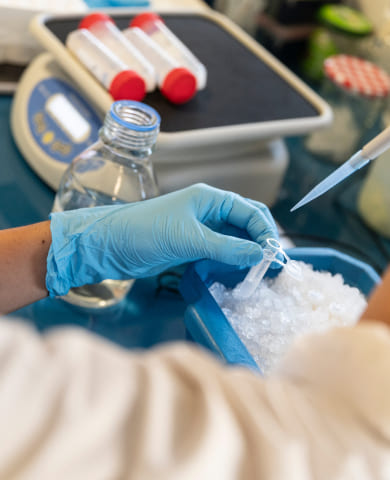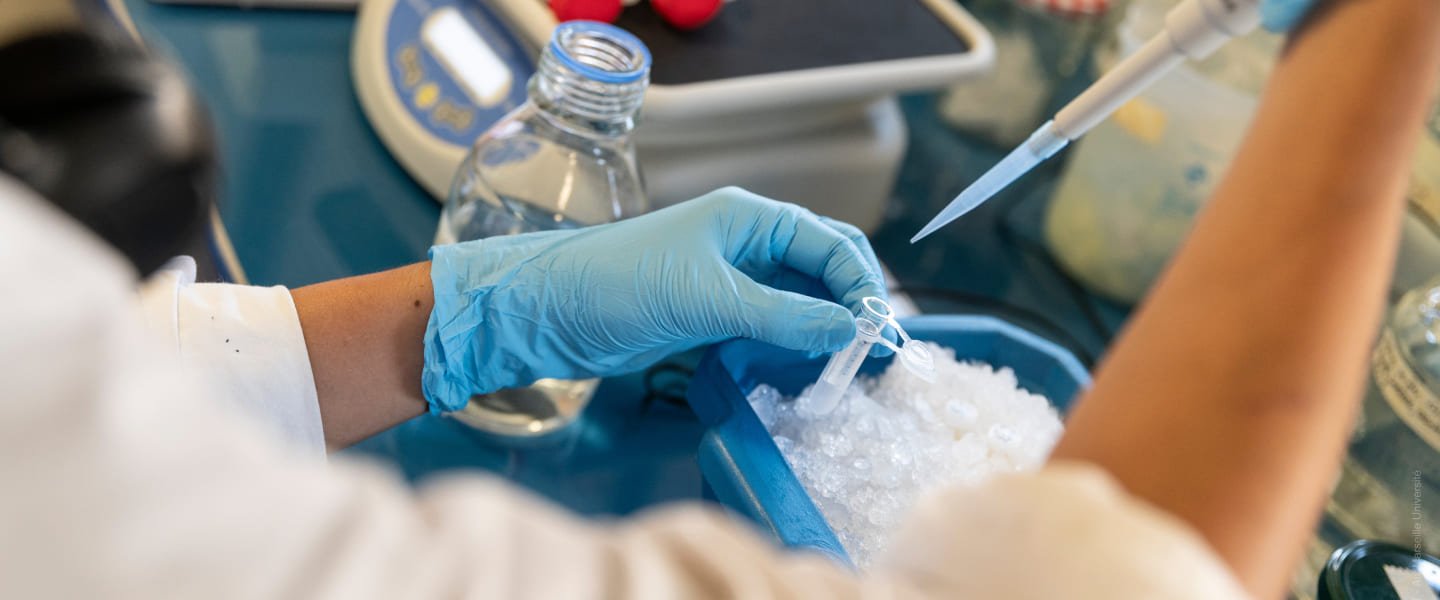An Innovative Cell Therapy for Triple-Negative Breast Cancer
Home - Innovation - Communiqué de presse - Lancement MIB


During this National Breast Cancer Awareness Month, dedicated to raising awareness of breast cancer, a promising breakthrough has emerged at the CRCM – Marseille Cancer Research Center.
Marseille, November 23, 2025 – Under the leadership of Prof. Daniel Olive and Dr. Marc Lopez, a team of researchers has developed a new generation of CAR-T cells capable of precisely targeting the protein Nectin-4, which is expressed in several solid tumors, including certain aggressive forms of breast cancer.
Objective: To offer a therapeutic alternative for patients with limited treatment options, particularly those with triple-negative breast cancer, a subtype that remains challenging to treat.
Among the researchers involved in this project is Alexandrine Faivre, an engineer specializing in immuno-oncology. After starting her career at Sanofi Genzyme, she joined the CRCM team, where she develops next-generation CAR-T cells.
Since 2025, she has been working at the MIB’s Cell-Scale platform.
Today, she takes us behind the scenes of this promising study, recently published.
Alexandrine, what does this new therapeutic strategy involve, and why is it considered a major advance against certain types of breast cancer?
“We have developed a therapy based on CAR-T cells, designed to recognize and destroy tumor cells expressing the Nectin-4 protein. This protein is present in several solid tumors, including breast tumors, particularly in triple-negative forms.
This type of cancer is often diagnosed in young women, progresses rapidly, and responds poorly to current treatments. With our next-generation CAR-T cells, we can target diseased cells with high specificity while sparing healthy cells, especially those in the skin.”
What is special about this target, Nectin-4, and what is its significance in the current treatment landscape?
“Nectin-4 is already targeted by an existing therapy: enfortumab vedotin (EV), used in patients with metastatic urothelial cancer. While this drug has shown promising results, it also causes significant side effects, notably skin toxicities, because Nectin-4 is also expressed in skin cells, and resistance can develop.
Our goal was therefore to overcome this limitation by designing a specific antibody that recognizes Nectin-4 only on tumor cells.”
What results have you obtained in preclinical studies, particularly for triple-negative breast cancer?
“We have tested our CAR-T cells in cell line-derived models as well as patient-derived xenografts (PDX) to best reflect clinical reality. In all cases, we observed significant tumor regression, including in tumors resistant to enfortumab vedotin, without skin toxicity.
This is very encouraging, as it demonstrates that our approach could offer a solution for patients with limited treatment options.”
You mention a cutting-edge technology used in the design of your CAR-T cells. Could you elaborate?
“Indeed, to introduce the CAR into T lymphocytes, we used a lentiviral vector pseudotyped with a baboon envelope. This greatly increased transduction efficiency, i.e., the ability to modify immune cells.
The result is a more robust and durable anti-tumor response, even in models expressing low levels of Nectin-4.”
How does this research fit into a collective effort and the momentum of Pink October?
“This project is supported by SATT Sud-Est and relies on team efforts at the CRCM, in collaboration with numerous partners.
During this National Breast Cancer Awareness Month, we are particularly proud to contribute, in our own way, to the hope of new therapeutic solutions for patients with breast cancer. Our work is not only a scientific advance but also carries a strong human dimension, focused on addressing the real needs of patients.”

Alexandrine Faivre, engineer specializing in immuno-oncology
Partager
Actualités
